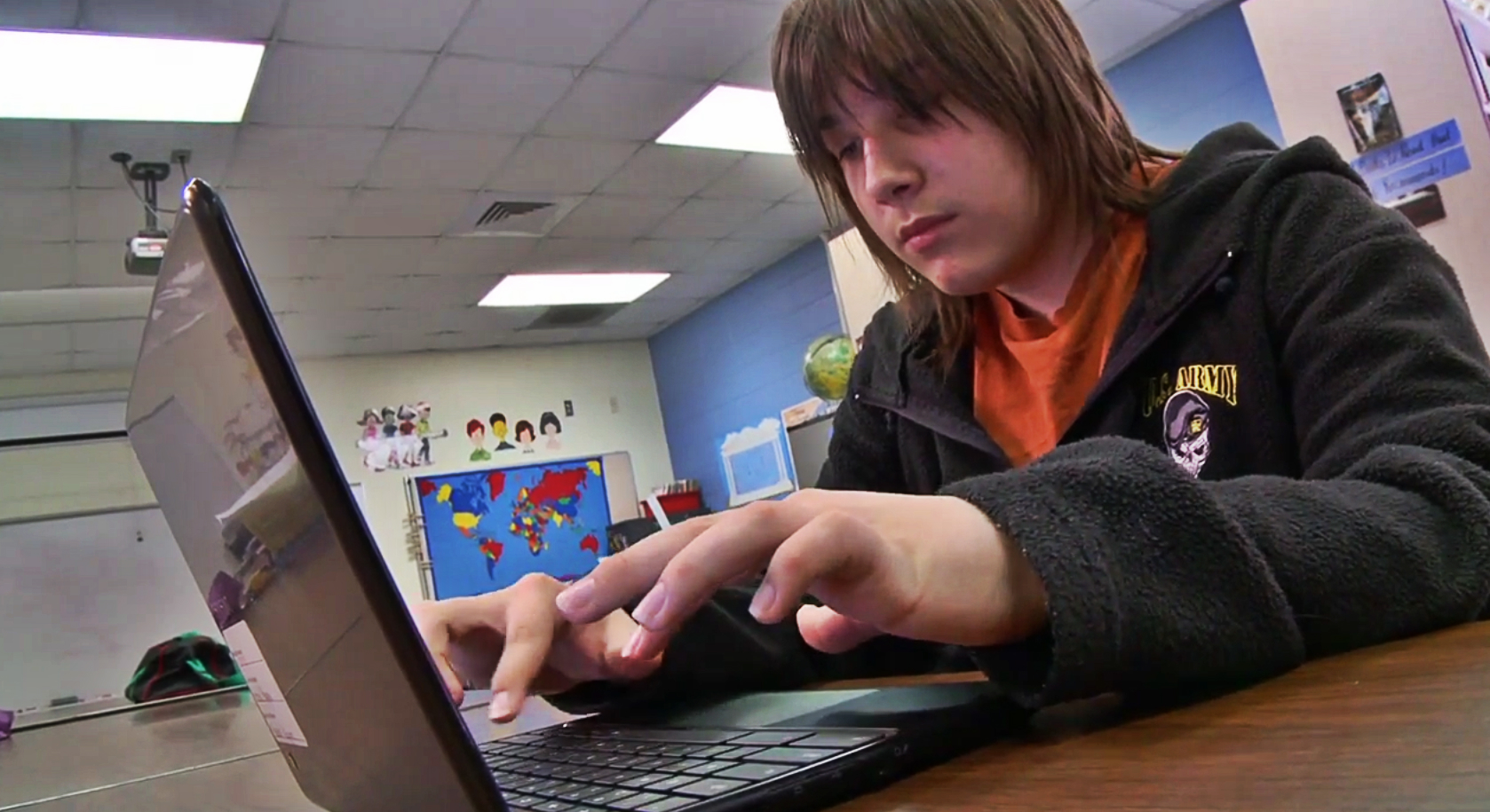
Chromebook passes back-to-school sales test Windows and Macs fail
Google's self-promoting Chromebook educational sales is more than public relations fluff. Laptops running Chrome OS provided "all the growth" in the otherwise troubled U.S. retail PC market during back-to-school buying season, according to NPD. Otherwise, overall PC sales fell 2.5 percent, with desktops down 5 percent and notebooks off by 2 percent. Mac laptop sales sank 3 percent and Windows notebooks by 6 percent. Chromebook sales topped 175,000 units.
"Chromebook sales are being helped by demand for low-cost computing", Stephen Baker, NPD's vice president of industry analysis, tells me today. "We saw strong sales in under-$300 Windows products as well". But Windows is established, while Chromebook is new and necessitates a mind-shift reset: Mostly working in an Internet-connected web browser.

Touch can save Windows 8.1
Windows 8 started out on shaky legs, but Microsoft's flagship platform found firmer footing during the lucrative back-to-school buying season, foreshadowing Santa could deliver gifts, rather than coal, this holiday season.
"Touch appears to be coming into its own as a core feature in the Windows ecosystem", Stephen Baker, NPD's vice president of industry analysis, tells me today. The analyst firm released new U.S. retail data showing two bright spots among otherwise tepid sales. "Chromebooks and Windows touch helped offset what could have been much steeper declines this back-to-school season", he says.
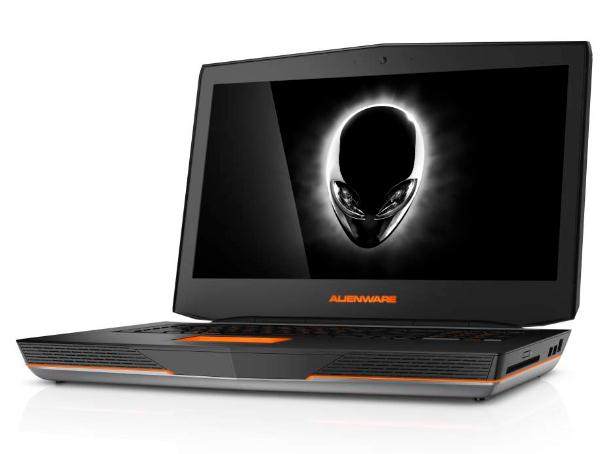
Alien invasion! Alienware unveils three powerful new gaming laptops
On Tuesday, Dell subsidiary Alienware announced three new gaming laptops featuring 14-inch, 17-inch and 18-inch displays, boldly touted by the US company as "the most powerful [...] in the universe". Each device offers upgraded quad-core Intel "Haswell" Core processors, new video cards and a different design theme compared to its predecessor.
The Alienware 14 is the smallest and the most portable of the three. The laptop packs a 14-inch screen and is offered with fourth-generation Intel Core i7 processors, Nvidia GeForce 700 series video cards, DDR3L RAM memory and up to three storage drives. The most interesting feature, however, is the optional 14-inch matte IPS display with a resolution of 1920 by 1080, which should translate into great viewing angles and comfortable outdoor use.
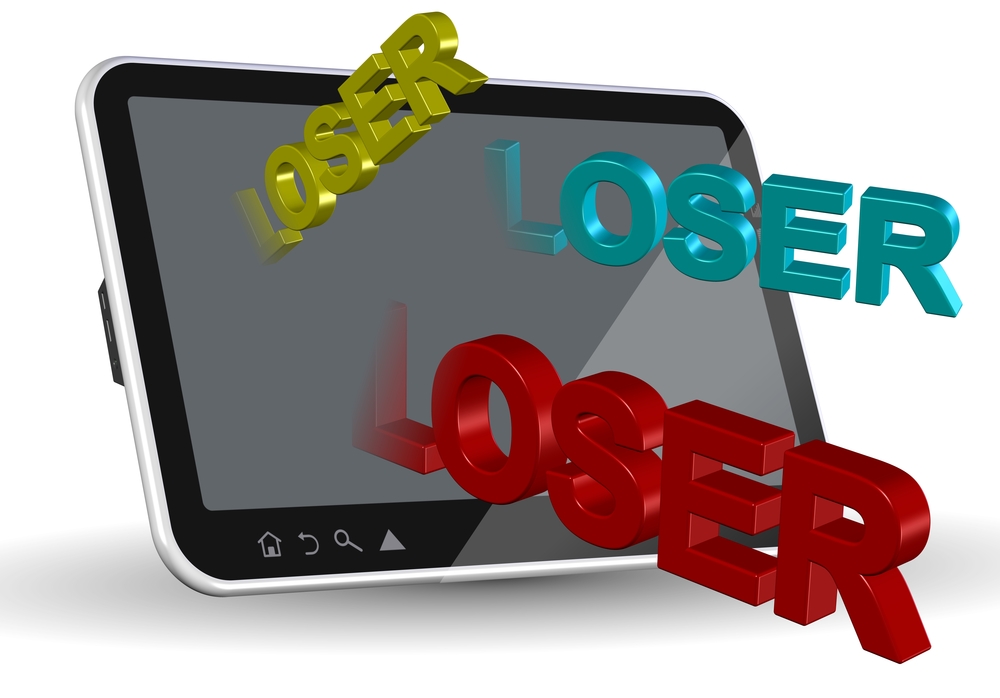
Tablets devastate laptop market
The white box battle is on, and laptops are losers. The big trend in tablets isn't iPad, contrary to public convention, but non-big-brand slates, which account for one-third of shipments, according to NPD DisplaySearch. Their success is good for Android, bad for Apple and worse for notebooks.
The early DOS/Windows PC market succeeded largely because of clones (like those from Compaq) and white label/box manufacturers and build-your-own enthusiasts. BYO isn't a tablet trend, but white box is, and its greatest impact is growth markets PC manufacturers count on -- or at least did.
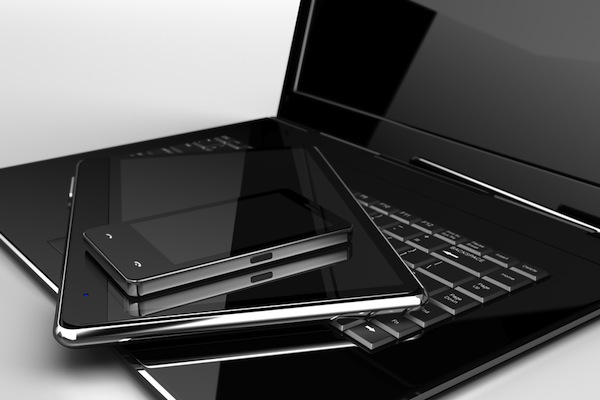
Expect employers to make you pay for devices, even if you don't want to
Here's a question for you: Is a company-provided device a benefit? You don't pay for hardware, software or service but might get older gear as hidden personal cost. I ask, because if Gartner is right, you'll soon pay, whether or not you want to. A survey of CIOs finds that 38 percent of companies plan to stop providing employees with devices by 2016. Wait a bit before reading on and think about what that really means.
"We're finally reaching the point where IT officially recognizes what has always been going on: People use their business device for nonwork purposes", David Willis, Gartner vice president, says. As someone working from home full time since May 1999, I must confess to rarely using company-issued computers or other devices. But that was my choice, and one often not supported by IT departments. Now, for many workers, there will be only choice of bringing their own.

PC apocalypse: Emerging market buyers move from smartphones to tablets
IDC continues to send smoke signals that a blistering fire rages across the planet, sure to scorch the earth where PC manufacturers hoped to plant new computer sales. Emerging markets are engulfed in a blaze of smartphone and tablet adoption that leaves little hope for a desktop or notebook revival. I simply cannot overstate the speed this thing moves.
Eight days ago, the analyst firm revised downward PC shipment forecast for 2013, singling out changing buying patterns among emerging markets. Today IDC reaffirmed the forecast, while releasing final full-year 2012 PC, smartphone and tablet shipments. The data is grim pickings.

When your laptop is lost or stolen, try IPFetcher
There are plenty of web services around which can try to help you find a stolen computer. Usually this involves equipping your system with a small agent of some kind, which then uses the system IP address, wifi connections and more to determine its current location, before communicating this to a central server.
If you’d like something more lightweight, though, there are a few simple free tools around which you might like to try. IPFetcher, for instance, won’t grab images from your webcam, and can’t lock down your system remotely. But it can retrieve a system’s IP address, then email or upload it to an FTP server, and that’s more than enough to be useful.
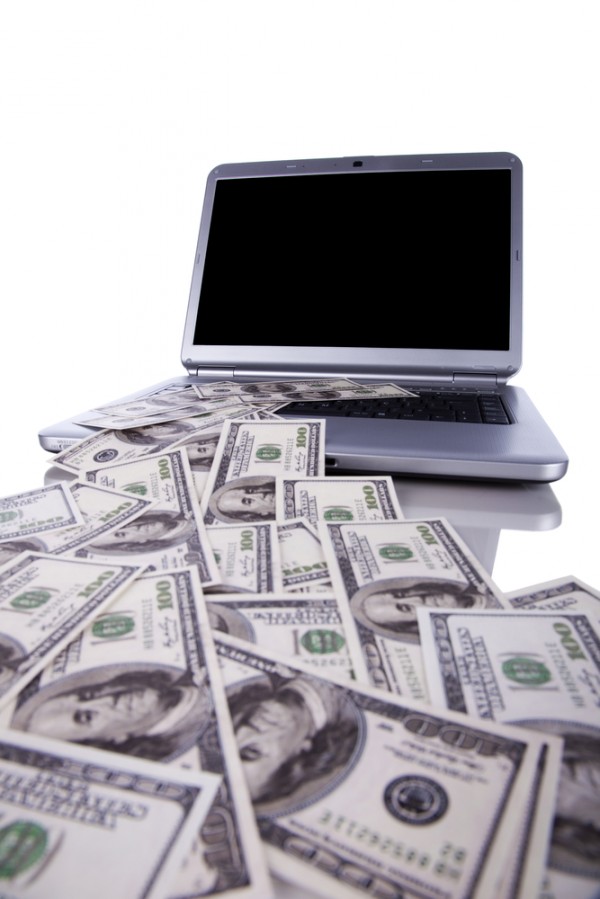
Goodbye Yellow Brick Road, SMBs plan to spend much more on tablets than PCs
Keeping with our ongoing "Ding, Dong, the PC's dead" theme, NPD reports that businesses with 50 to 999 employees will spend more on technology this year. That's good news for PC manufacturers but much, much better for anyone selling tablets -- or the ecosystem supporting them. SMBs are suddenly a bright light cast against vast darkness. Yesterday, IDC warned that PC shipments would fall double-digits during first quarter.
Somebody is buying, at least. Thirty percent of SMBs surveyed by NPD plan to increase PC spending -- that's up from 22 percent just three months ago. Woot! Woot! "PCs are still a core part of the technology arsenal of the typical U.S. corporate employee and a regular rotation of new and upgraded equipment is part of best practices for most mid-sized U.S. businesses", Stephen Baker, NPD's vice president of industry analysis, says.
Will you buy Google Chromebook Pixel?
That sound you just heard was Google slapping Apple across the face. Today the search and information giant unveiled and starting selling high-end portable Chromebook Pixel. By just about every measure, Google guns for Apple in its dominant market -- premium PCs, or those selling for $1,000 or more. When rumors circulated about the computer, I opined: "Chromebook Pixel looks like MacBook Pro to me". The impression is stronger now that the real deal is here -- from form factor to price, either $1,299 or $1,449.
Should Apple sweat about Chromebook Pixel? I would. Following a years-long retail trend, Apple share of PCs selling for $1,000 or more was over 90 percent in 2012, according to NPD. Stephen Baker, NPD's vice president of industry analysis, asks if Google is "more trying to compete with Apple and high-end windows machines for premium consumer and maybe corporate?" I answer: Yes. What I want to know: Will you buy Chromebook Pixel? But more importantly: Would you buy Chromebook Pixel instead of 13-inch MacBook Pro?
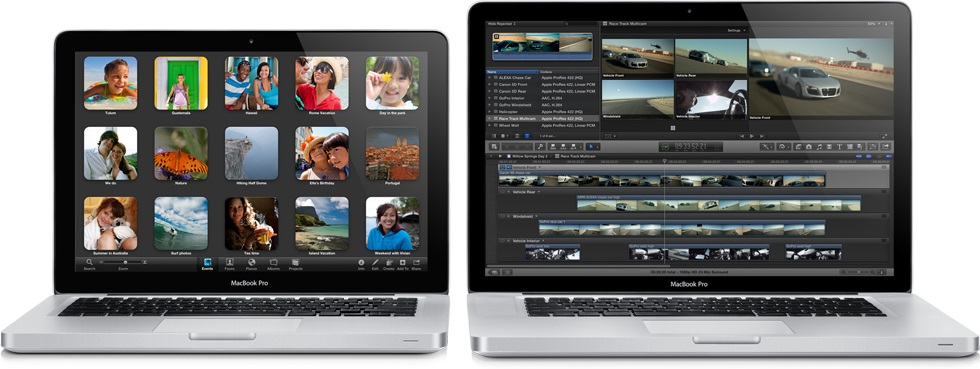
Apple lowers laptop prices, beefs up specs
Today, Apple announced a number of changes in the pricing and hardware department for the company's MacBook laptop lineup. The Mountain View, Calif.-based corporation lowered the price for the 13-inch MacBook Pro with Retina display and for the top-of-the line 13-inch MacBook Air and beefed up the specs for the 15-inch MacBook Pro with Retina display.
If you were holding off on buying an Apple MacBook now is a good time to reconsider. The fruit-logo company slashed $200 from the price of the 13-inch MacBook Pro with Retina display, which now starts at $1,499 and $1,699 for the base and top model, respectively. Apple applied a similar treatment to the 13-inch MacBook Air in 256GB trim, which now goes for $1,399, $100 less than before.
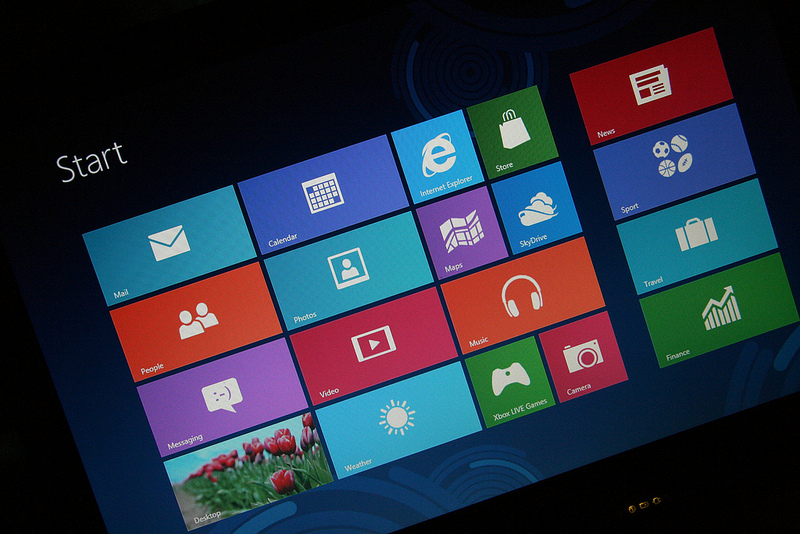
Windows 8 sinks with US laptop sales
I rarely quote press releases, but analyst missives are a rare exception because sometimes they make the point so much better than any paraphrasing. "Despite the hype, and hope, around the launch of Windows 8, the new operating system did little to boost holiday sales or improve the year-long Windows notebook sales decline", according to NPD. That's the dismal news for US holiday retail sales between Nov. 18 and Dec. 22, 2012. Windows 8 is a disaster, as I expressed when NPD released early sales data in late November. Matters are worse. This is no longer the Titanic sinking but a fleet of ships.
Gartner and IDC are about to drop global fourth-quarter PC shipment data, but in context of today's separate report from NPD DisplaySearch, expect blood in the water and post-PC sharks circling the victims. According to DisplaySearch, tablet shipments surpassed laptops in the United States last year. Stated bluntly: "increasing tablet PC adoption is stymieing notebook PC growth". Yikes!
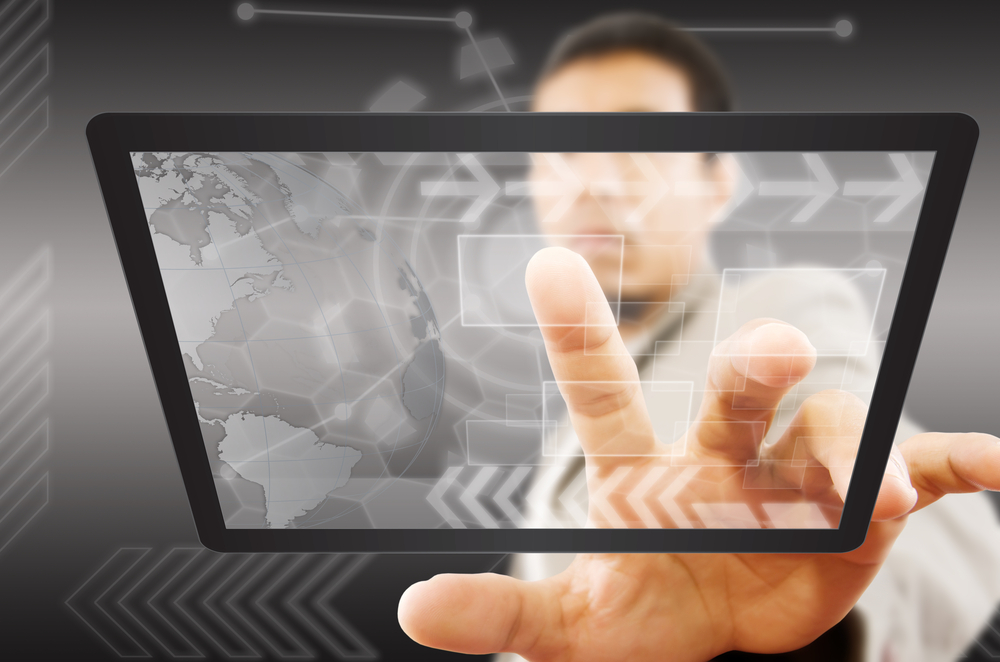
Holy post-PC era! Tablet shipments will surpass laptops this year
Quick, send a load of Valium to Intel and Microsoft executives! Gasp -- to Apple, too. Today NPD DisplaySearch forecasts that tablet shipments will exceed notebooks in 2013, globally. But in China and the United States, the milestone passed last year.
About 18 months ago, analysts started the smartphone-shipments-are-greater-than-PCs meme, which I didn't take too seriously. The market dynamics are different and handsets' functionally don't replace personal computers. Tablets are a whole other matter, because they can do just that. The category's rise over laptops is hugely significant.
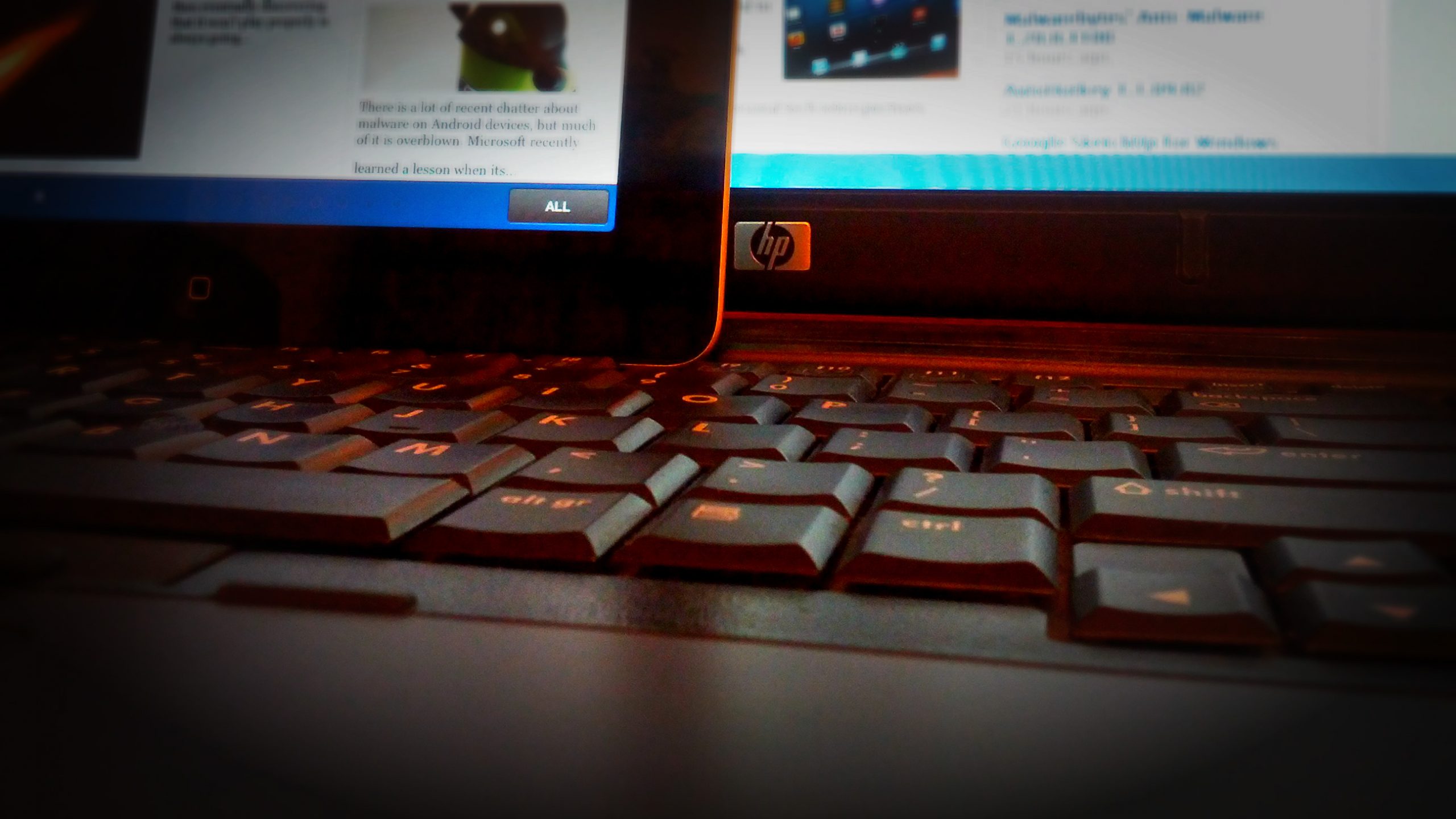
[Mihaita] The tech I used most in 2012
If there's one word that best describes my personal tech use for 2012, change is definitely it. For the most part of the year I "cheated" one platform with another, with no particular personal favorite to get me through (almost) 365 days. Each piece of software and hardware is used for a particular scenario, something that I find rather soothing for my personal early adopter endeavors as well as my sanity. I just can't stand tinkering with the same bit of tech for longer periods of time, although there still is a dear old friend in my life...
My colleagues Alan Buckingham and Wayne Williams already wrote about their personal tech choices in 2012, and now it's my turn. Without further ado here is what I used most throughout the year, starting with my trusty dear old friend.

Santa writes the PC's obituary
I lost hope for Windows 8 last night, after visiting my local Best Buy store and seeing gads of cheap computers vying for customers' attention and losing it to tablets and smartphones. The prices are insanely low, which is more surprising because Microsoft has a new operating system that's supposed to generate demand and lead to market innovative touchscreen and convertible designs that offer real benefits to buyers and higher margins to manufacturers and retailers. Ba! Humbug! Gimme Grinch. There's no Santa coming to this island of misfit toys. There, have I mixed enough metaphors to make the point?
This morning, I looked at PC prices from other retailers and the shock is greater still. I'll look first at Best Buy, which has some terrific bundles, starting at $299.99, for Windows 8 Dell or HP laptop, case, mouse, USB stick and security software (with 12-month subscription). Is that too much for you to spend? Best Buy has a Toshiba model for $269.99 with AMD dual-core processor, 15.6-inch LED display, 2GB RAM, 320GB hard drive, DVD burner, WiFi and all the ports you'd expect. For $329.99, you can move up to Intel processor, 4GB RAM and 500GB with a Samsung Series 3 laptop. At my local store, boxes fill the main aisle adjacent to the tablets. Meanwhile, Best Buy tucks expensive Ultrabooks further back, in a smaller side-isle display area almost anyone could miss.
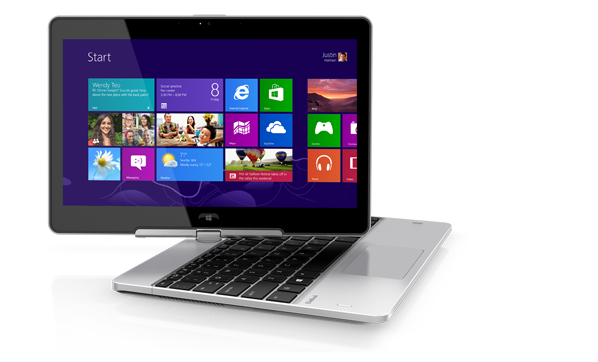
HP introduces EliteBook Revolve, a hybrid for business users
HP revealed the pricing for its initial Windows 8 line-up in late October, and today the company introduces another model designed to run Microsoft's latest consumer operating system. The EliteBook Revolve is described as a convertible tablet/touch-enabled notebook, aimed at business and government use, and with support for legacy applications.
The company is evasive when it comes to detailed specifications, though, giving very little away. Not overly surprising considering the same thing happened with the ElitePad 900. However, HP does say that the EliteBook Revolve comes with an 11.6-inch HD display protected by Corning Gorilla Glass 2 (with the resolution likely to be in the 1366 x 768 territory). Processing power comes from third generation Intel Core processors, suggesting Core i3 to Core i7 CPUs. Solid state drive options, coupled with Intel Rapid Start Technology, are available in a choice of sizes up to 256GB. There’s also a 720p HD camera onboard; WWAN (Wireless Wide Area Network); USB 3.0; DisplayPort and NFC (Near Field Communication).
